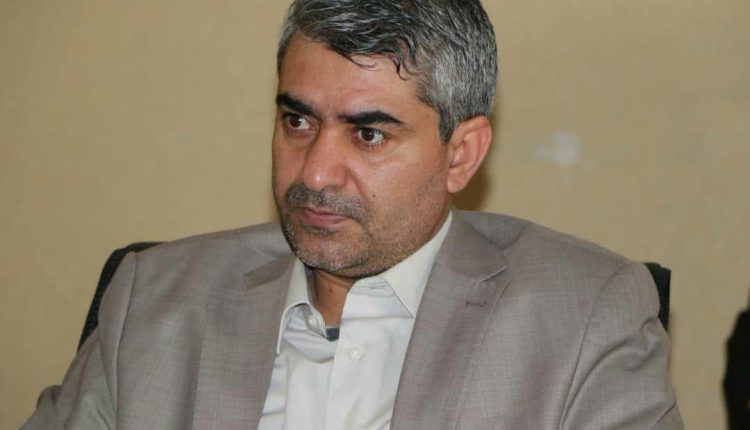Head of Humanitarian Affairs Management Authority: Thirty WFP employees working for foreign intelligence services were rejected
SANAA, June 24 (YPA) – The head of the National Authority for Management and Coordination of Humanitarian Affairs, Abdul Mohsen al-Tawoos, revealed that 30 employees of the World Food Program (WFP) were rejected because they were found to be affiliated with foreign intelligence services.
“The commission has rejected 30 employees of the World Food Program after discovering their affiliation with foreign intelligence services,” al-Tawoos said in an interview with Al-Massira newspaper on Sunday.
“The National Salvation Government has taken into account the needs of the poorest families if the program insists on suspending its work,” he said.
“After the failure of the aggression against Yemen militarily and economically, the enemy has been betting heavily on the humanitarian side through its soft claws, the World Food Program,” al-Tawoos said.
The director added that the World Food Program “has shifted from being a neutral relief and humanitarian organisation, into a party that adopts the theories of our enemies.”
“The WFP today uses the same methods used by aggression, and it has become an integral part of the aggression. It is to be expected that the aggression would use the humanitarian side, after it has failed militarily.”
“We are saying that the work, the orientation and the insistence of the World Food Program (WFP) are to implement of the policy of the US, Saudi and Emirati regimes in their war and aggression against Yemen,” al-Tawoos claimed.
He refuted the statements made by the Executive Director of the UN World Food Program, David Paisley.
“David Paisley’s statements and accusations against Sana’a are untrue. The [Yemeni] authorities refuse to allow the program’s corruption and its suspicious works that have nothing to do with the core of the relief work and the competence of the international organisation, to continue.”
The head of the Humanitarian Affairs Authority described the World Food Program’s suspension of its work in Sana’a Governorate as “folly”.
The WFP threatened to completely halt all food aid deliveries in response to a difference of opinion with the Yemeni government. Such a decision would possibly threaten the lives of millions of civilians who are dependent on food aid for survival due to the Saudi-led invasion.
“We have explained to them that we do not mind the implementation of a fingerprint taking measure, but only in a way that guarantees the dignity of the Yemeni citizen, and also without prejudice to the sovereignty of the country and the laws of the Republic of Yemen,” al-Tawoos stated.
“This is the point of contention, and although the delegation of the WFP has promised that we will reach a solution and he will inform his superiors about this, on the second day we were surprised by the program’s suspension of its activities in Sana’a Governorate.”
“This escalatory step has not escaped our pressure to rectify the imbalances in rotten food,” he said. Yemen has repeatedly denounced the fact that large amounts of rotten and pest-infested food have been delivered under the the guise of humanitarian aid, despite the fact that the WFP has a massive financial reserve.
“The World Food Program’s operational expenditures amount to nearly $200 million in salaries and expenses, as we revealed at the press conference,” he said.
“We have special documents proving significant corruption in terms of operational expenses, both in terms of employees ‘ salaries and in terms of the possibilities that are wasted between armored vehicles, transport, logistics, communications, furniture, etc.”
Al-Tawoos stressed the oversight role of the authorities in detecting the corruption of the World Food Programme, especially with regard to corrupt medicines or wasteful operating expenses,
“We have too many documents to prove that this food is only the remainder of the funds financed by the Yemenis. [The WFP] buys rotten food that arrives in Yemen, which has been seized at the port and in customs in Sana’a governorate, and even in warehouses,” the director of the National Authority for Management and Coordination of Humanitarian Affairs said.
E.M


